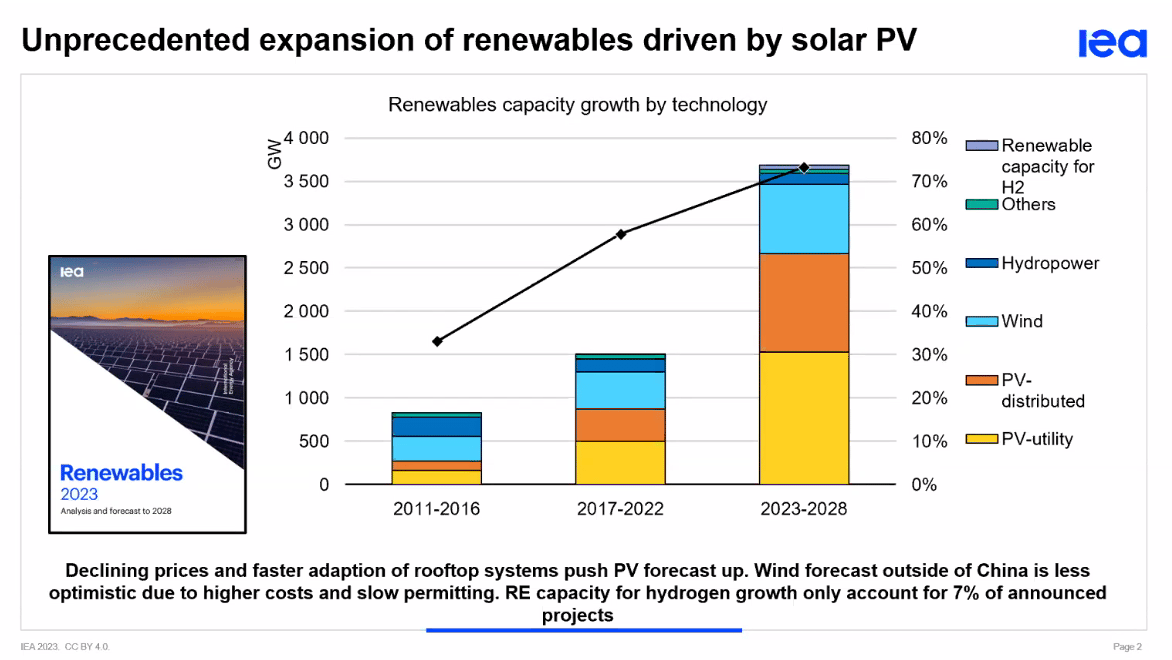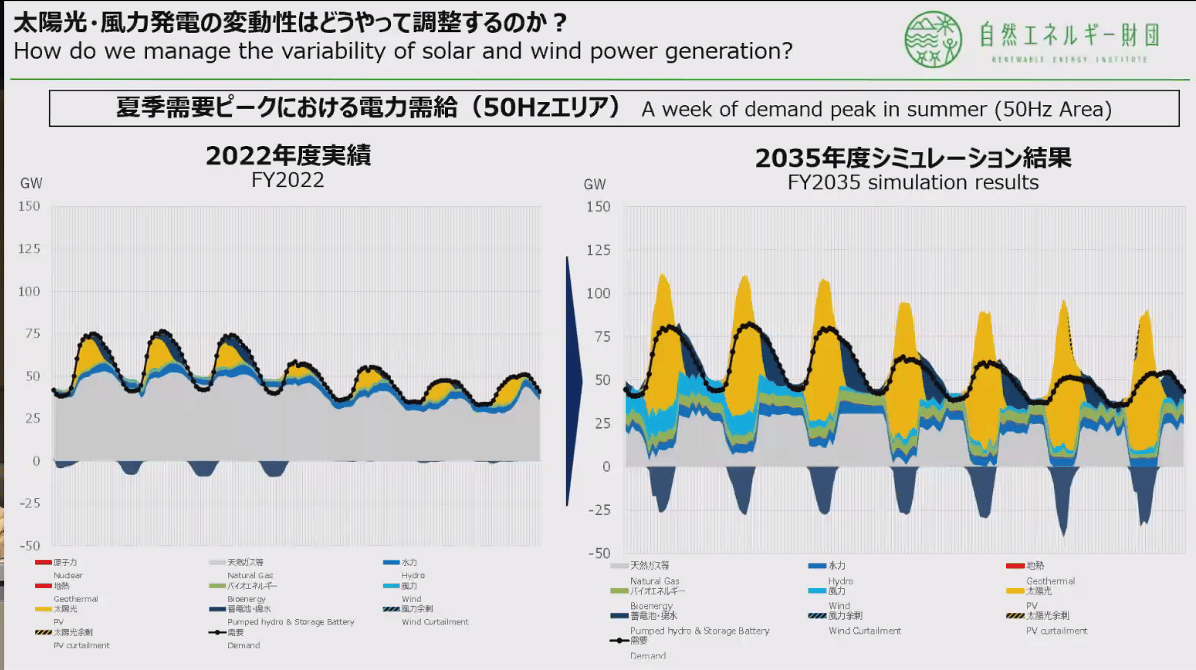"Decarbonization Scenarios for Japan: The Way Forward for the Strategic Energy Plan"
Last December, COP28 pledged to triple the world's renewable energy capacity by 2030, and this year's G7 meeting agreed to phase out coal power by 2035. In preparation for this year's revision of Japan's Strategic Energy Plan, the Renewable Energy Institute released a new decarbonization energy transition scenario on June 19. I was excited to learn from the event "Decarbonization Scenarios for Japan: The Way Forward for the Strategic Energy Plan." Last December, COP28 pledged to triple the world's renewable energy capacity by 2030, and this year's G7 meeting agreed to phase out coal power by 2035. In preparation for this year's revision of Japan's Strategic Energy Plan, the Renewable Energy Institute released a new decarbonization energy transition scenario on June 19. This symposium will present and discuss the content of this groundbreaking proposal, which promises to shape Japan's energy future.
Japan's Strategic Energy Plan, the Renewable Energy Institute released a new decarbonization energy transition scenario on June 19. I was excited to learn from the event "Decarbonization Scenarios for Japan: The Way Forward for the Strategic Energy Plan." Last December, COP28 pledged to triple the world's renewable energy capacity by 2030, and this year's G7 meeting agreed to phase out coal power by 2035. In preparation for this year's revision of Japan's Strategic Energy Plan, the Renewable Energy Institute released a new decarbonization energy transition scenario on June 19. This symposium will present and discuss the content of this groundbreaking proposal, which promises to shape Japan's energy future.
Paolo Frankl: Tracking Progress towards Tripling Renewable Capacity Pledge by 2030 Head of Renewable Energy Division, International Energy Agency (IEA)
Paolo Frankl's keynote was a powerful call to action, emphasizing the global target to triple renewable energy capacity by 2030. His insights on the importance of policy frameworks and financial incentives to drive this transition were particularly impactful. Frankl's emphasis on ensuring that local communities benefit directly from renewable energy projects highlighted the need for inclusive and equitable energy strategies. His talk inspired me to think more deeply about the social dimensions of renewable energy development.
Kae Takase: 2035 Energy Transition Scenarios to Decarbonization Senior Manager (Climate Change), Renewable Energy Institute
Kae Takase's presentation on decarbonization scenarios up to 2035 was both enlightening and motivating. She detailed the necessary steps and technological advancements required to achieve significant reductions in carbon emissions. Takase's thorough analysis and optimistic outlook reinforced my confidence in the feasibility of achieving our climate goals through strategic planning and innovation. Her talk inspired me to stay committed to advancing renewable energy technologies.
Bruce Douglas: Significance and Potential of Tripling Renewables CEO, Global Renewables Alliance
Bruce Douglas's insights during the session on the potential of tripling renewable energy capacity were particularly thought-provoking. He discussed the vast possibilities and benefits of expanding renewable energy infrastructure globally. Douglas's perspective on the critical role of international cooperation and private sector engagement in accelerating renewable energyadoption was inspiring. His talk motivated me to consider the broader, global impact of our efforts and the importance of collaboration in driving sustainable energy transitions.
These speakers not only provided valuable information but also inspired a renewed sense of purpose and excitement about the future of energy regulation and strategy. Their expertise and vision underscored the importance of our collective efforts in creating a sustainable and equitable energy future.
Here are some example of helpful figures from the presentation!


Please sign in
If you are a registered user on Laidlaw Scholars Network, please sign in